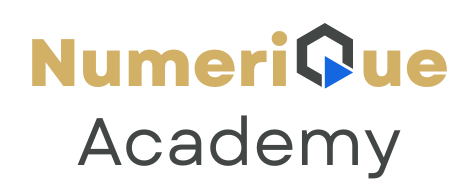Search Engine Optimization (SEO) is no longer just about adding keywords or building backlinks. Google’s algorithms have evolved drastically, thanks to artificial intelligence (AI) and machine learning. Today, systems like RankBrain and BERT play a crucial role in how search results are ranked. If you want your website to perform well, you need to understand how these algorithms impact SEO and how to optimize accordingly.
The Evolution of Google’s Algorithms
In the early days of Google, search ranking was heavily influenced by keyword density and backlinks. But this often led to keyword stuffing and poor-quality content ranking higher. To solve this, Google has continuously updated its algorithms to focus more on user intent and content relevance.
That’s where AI-driven updates like RankBrain (2015) and BERT (2019) come in.
What is RankBrain?
RankBrain is an AI system that helps Google interpret search queries — especially those it has never seen before. Instead of matching keywords literally, RankBrain focuses on understanding meaning and context.
Example:
If someone searches “best place for a short break near me”, RankBrain knows the user might mean “weekend getaways nearby”, even if those exact words aren’t in the content.
Impact on SEO:
- Content needs to be contextually rich, not keyword-stuffed.
- Optimizing for long-tail and conversational queries improves ranking.
- Websites that provide clear answers and strong user experience perform better.
What is BERT?
BERT (Bidirectional Encoder Representations from Transformers) is a natural language processing (NLP) model. Unlike traditional keyword matching, BERT looks at the full context of a sentence by analyzing words in relation to each other.
Example:
Search: “Can you get medicine for someone pharmacy”
- Old algorithm: might show results about “pharmacy medicine jobs”.
- With BERT: Google understands the intent is about buying medicine on behalf of someone.
Impact on SEO:
- Content must be written naturally, like humans speak.
- FAQ-style pages and conversational blog posts perform better.
- Search intent optimization is more important than exact keywords.
RankBrain vs. BERT: How Do They Differ?
- RankBrain → Focuses on understanding unfamiliar queries through AI.
- BERT → Focuses on understanding the context of words in a sentence.
- Together → They make search results smarter, ensuring users get what they mean, not just what they type.
How to Optimize for Google’s AI Algorithms?
Here are practical steps to align your SEO strategy with RankBrain and BERT:
- Focus on User Intent
- Understand what your audience is actually searching for.
- Use tools like AnswerThePublic or People Also Ask insights.
- Write Naturally
- Avoid keyword stuffing.
- Use conversational language and complete sentences.
- Use Long-Tail Keywords
- Optimize for phrases like “how to fix slow WordPress site” instead of just “WordPress speed”.
- Improve Content Depth
- Cover topics thoroughly, answering related questions within the article.
- Use subheadings (H2/H3), bullet points, and structured data.
- Enhance User Experience
- Fast-loading, mobile-friendly, and easy-to-read websites perform better.
- Bounce rate and dwell time indirectly influence rankings.
What This Means for the Future of SEO?
Google’s reliance on AI means SEO will become less about gaming the system and more about creating value for users. With upcoming advancements in generative AI, search results will continue to evolve, giving more weight to context, authority, and trustworthiness (E-E-A-T).
Marketers who adapt to this by focusing on intent-driven, high-quality content will stay ahead.

